Propaganda posters during World War II
During the Nuremberg trial, in the diary of Gustave Gilbert, was noted a confession from Goering:
Naturally, the common people don't want war, neither in Russia nor in England nor in America, nor for that matter in Germany.
But after all, it's the leaders of the country who determine the policy, and it's always a simple matter to drag the people along whether it's a democracy, a fascist dictatorship, or a parliament, or a communist dictatorship.
Oh, that is all well and good, but, voice or no voice, the people can always be brought to the bidding of the leaders. That is easy. All you have to do is tell them they are being attacked, and denounce the pacifists for lack of patriotism, and exposing the country to greater danger."
This shows the role of propaganda in the collective opinion. That's why these posters ...
Poster or leaflets in England. It is clear who is the enemy for those who do not know.
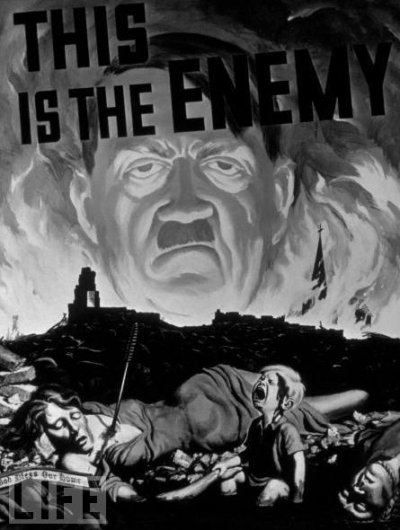
Russian poster showing Hitler as a cannibal devouring European countries one after the other. He is not presented to his advantage!

Other Russian poster. The Germans are hungry monsters who covet your women.
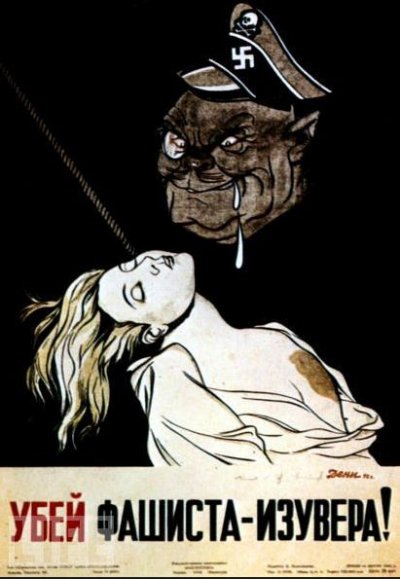
Poster of the Navy to encourage drivers to remain cautious and avoid accidents, which says the poster, the Japanese would welcome. They were not afraid of clichés on both sides.
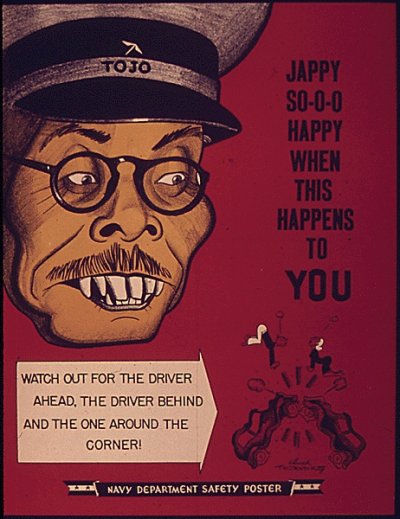
American poster describing the German monster seizing freedom symbolized by a woman and threatens the culture. This is an alternative to Uncle Sam needs you.
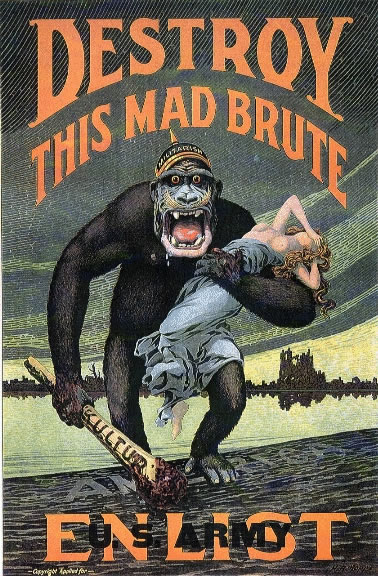
This other poster is at the opposite of the dramatic effect of the previous. It wants to encourage the war effort and production of weapons. Put his panzers down it said. Pants, panthers, panzer it is all the same.
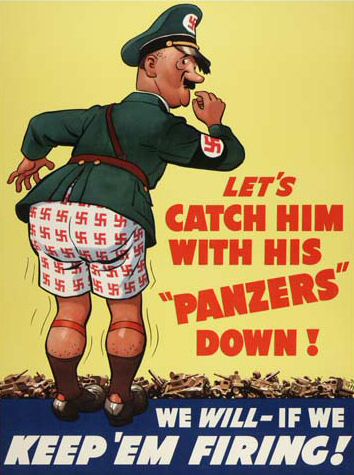
This other U.S. poster is interesting. We see where Obama found the slogan of his 2008 presidential campaign (Yes we can). This is an image from the firm Westhinghouse to encourage the war effort.
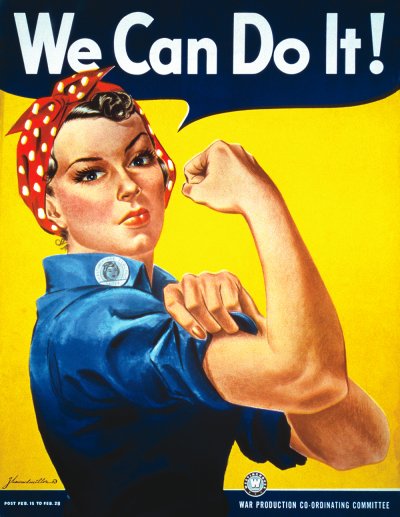
The Nazis depict the liberators as destructors who devastate cities, under the pretext of freeing. This poster was released in Holland. They denounce racism without much discomfort with an allusion to the Ku Klux Klan. Music seems to be part of the vices of the enemy.
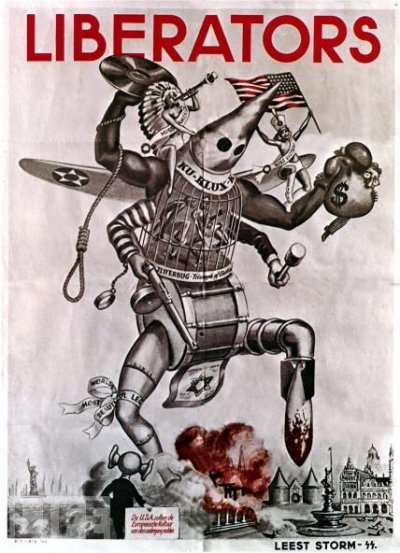
The lights were banned under German rule as it had helped the Allies to navigate and find their targets. This poster suggest that the offenders were the target of the bombing.
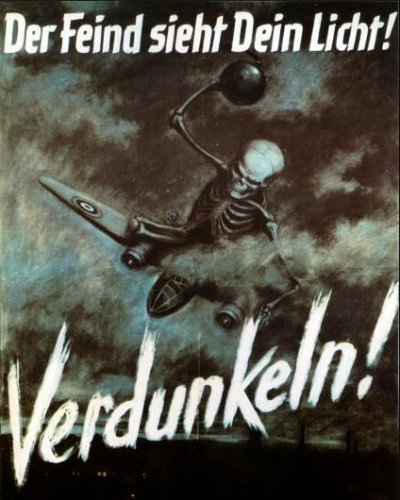
And they was trying to undermine the morale pf soldiers by reminding them that while they were going to fight and risk their lives, their wives lonely could fool them ...
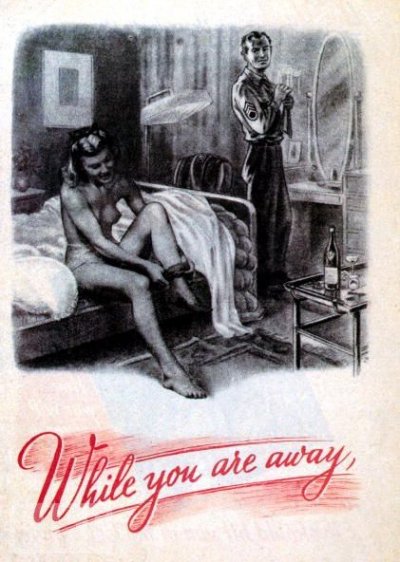
They have tried everything. It did not worked out!






